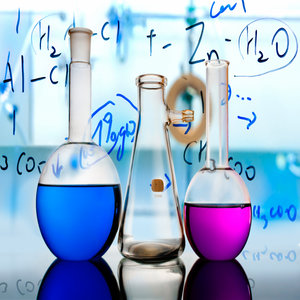What is Chemical engineering all about?
 As the name suggests chemical engineering is a combination of both chemistry and engineering from a variety of fields like biotechnology, nanotechnology, mineral processing, synthetic fibers, petroleum refining plants, etc. It is the field which deals with maintenance and designing of chemical plants along with the development of chemical processes to convert raw materials into useful products.
As the name suggests chemical engineering is a combination of both chemistry and engineering from a variety of fields like biotechnology, nanotechnology, mineral processing, synthetic fibers, petroleum refining plants, etc. It is the field which deals with maintenance and designing of chemical plants along with the development of chemical processes to convert raw materials into useful products.
Chemical Engineering is regarded as one of the oldest and most popular engineering sub-domains existing in the physical sciences. A lot of experts also referred it as applied Chemistry, this field deals with the transformation of raw materials into more useful and valuable forms by application of physical sciences (physics & chemistry) as well as (microbiology, biochemistry & biology) and mathematics. Common examples of chemical engineering products that we use in our daily life include petroleum products, cosmetics, plastic and many more.
Scope of Chemical Engineering
Chemical Engineers are commonly entitled as 'Universal Engineers’ for their deep knowledge of both the fields of engineering and chemistry. Their main work is to convert natural or waste materials into useful or less harmful chemical products. Their educational background provides them with an opportunity to work in a variety of industries like oil and gas industries, food industries, energy industries, chemical and allied products, utility companies, pharmaceuticals, government departments, etc.
As far as course core curriculum is concerned, students taking up Chemical Engineering will be taught theoretical and practical related to topics like:
* Physical chemistry
* Fluid mechanics
* Inorganic chemical technology
* Organic chemical technology
* Chemical engineering thermodynamics
* Particulate science and technology
* Biochemical engineering
* Material science and technology
* Environmental engineering
Eligibility Criteria
Like most engineering programs, candidates can apply for B.Tech in Chemical Engineering after completing 10+2. Most of the engineering colleges offering these programs will conduct admission on the basis of entrance exams. Different institutions conduct their own entrance exams such as VITEEE conducted by VIT University and LPU NEST conducted by the Lovely Professional University. However, admission to IIT is done on the basis of JEE advance and to NITs, it is done on the basis of JEE mains. To apply for post-graduation courses of chemical engineering, candidates need to score at least 60 percent marks in graduations.
Career and job opportunities
Chemical Engineers are always in demand among the chemical centric industries across the globe. When it comes to India, chemical engineers can find excellent employment offers in public sector units especially in petroleum processing industries as well as chemical and fertilizer industries and in the private sector, pharmaceutical industries and biotechnology centric businesses are known as the best pay masters for chemical engineers. The package for chemical engineers is higher in the private sector compared to public sector units and increases significantly with experience, seniority, and qualifications. To name some of the companies that hire chemical engineers are –Essar Oil Limited, Indian Oil Corporation, Oil and Natural Gas Corporation Limited, Reliance Industries Ltd and Johnson Matthey.
Chemical Engineering is one of the core engineering branches that lost some of its recognition after the software industry came into existence at large. It is an ideal course for candidates who want to pursue a career in applied chemistry.

